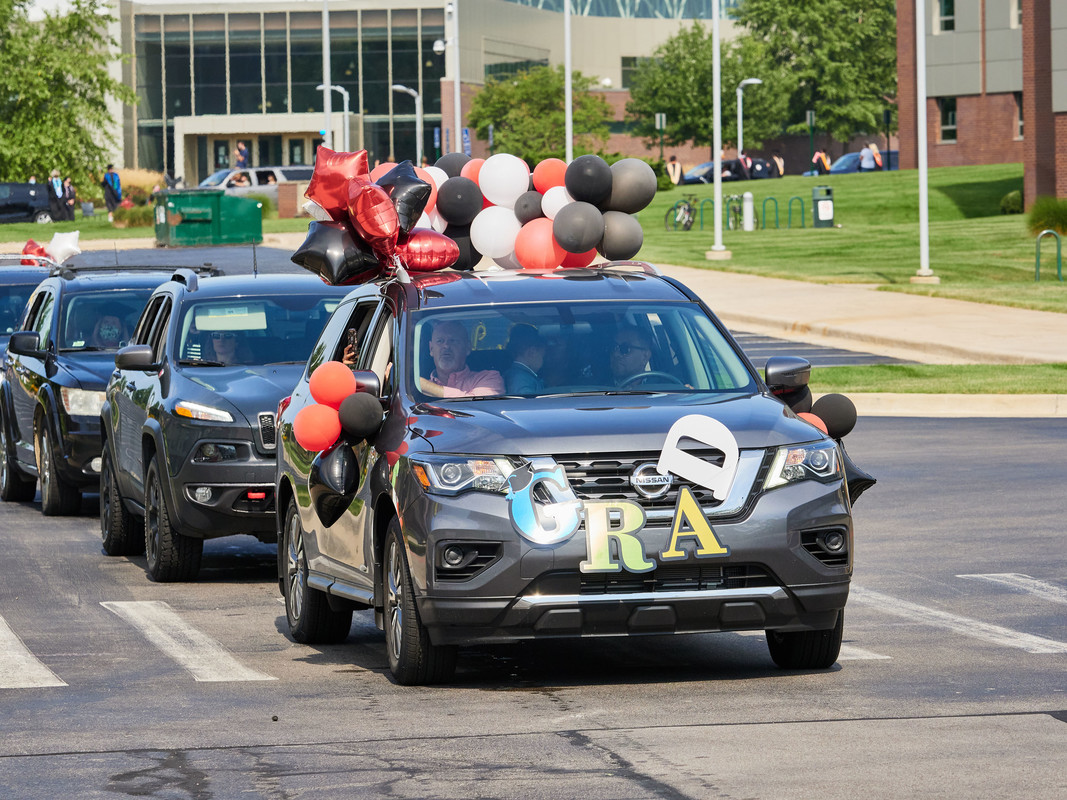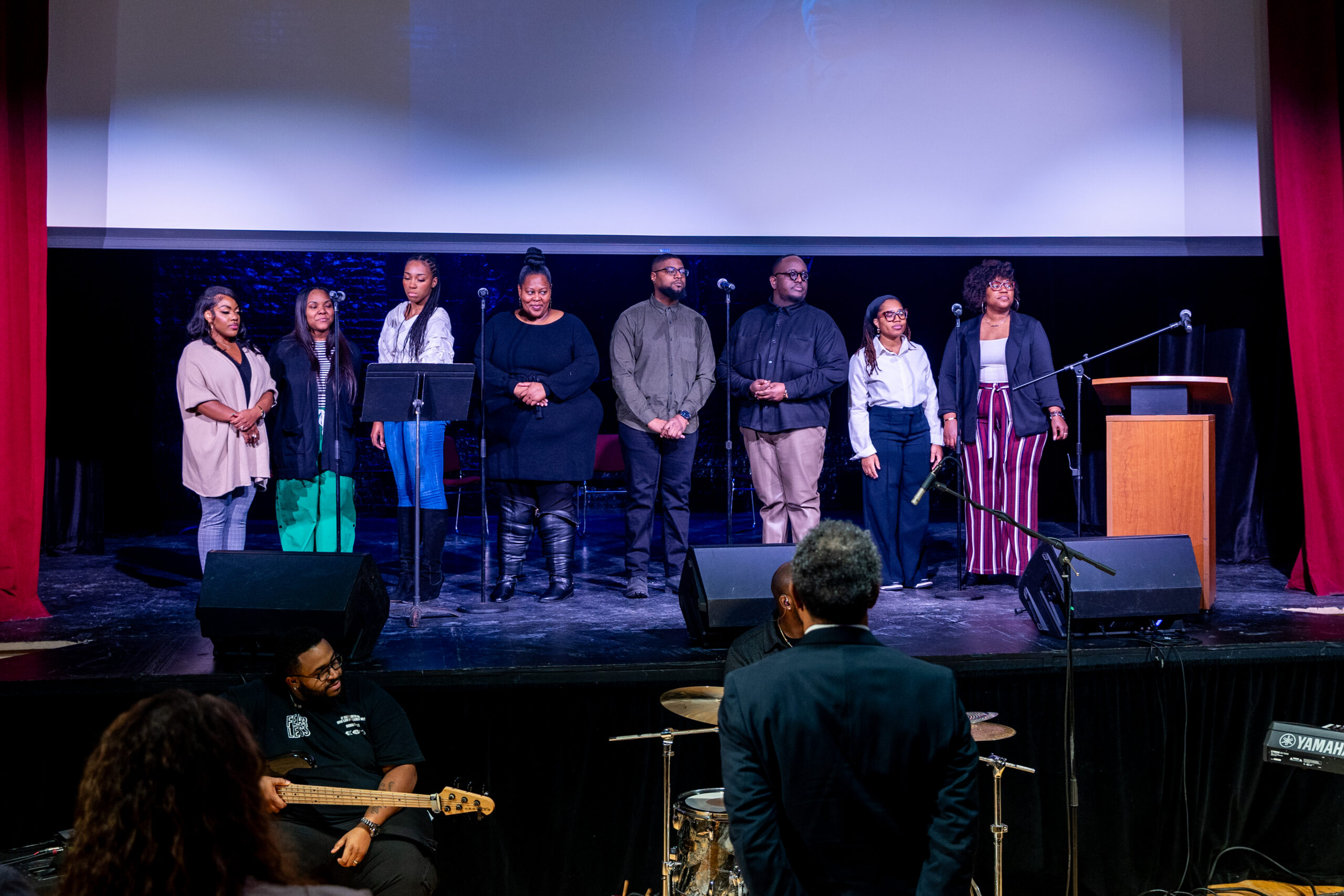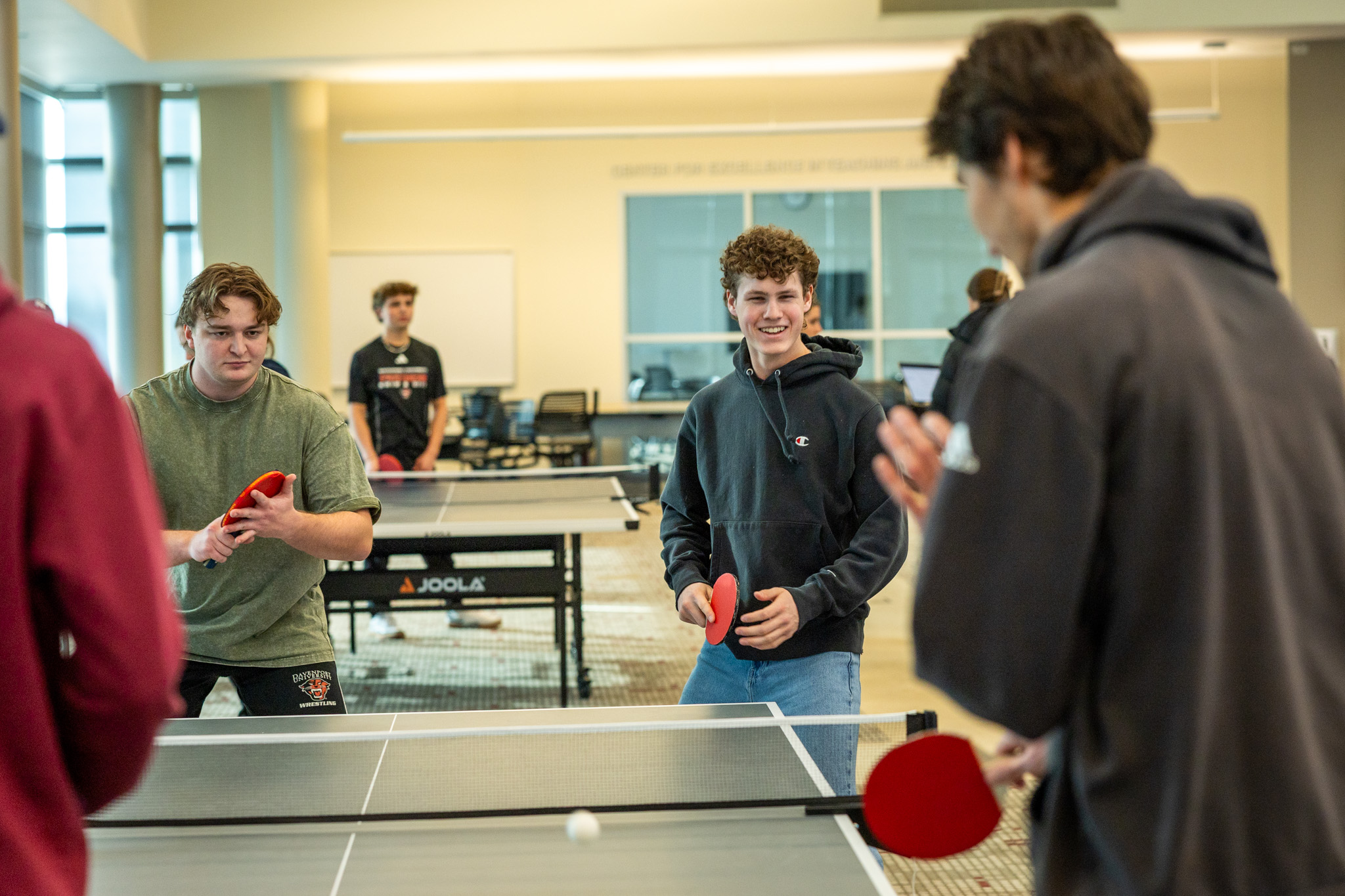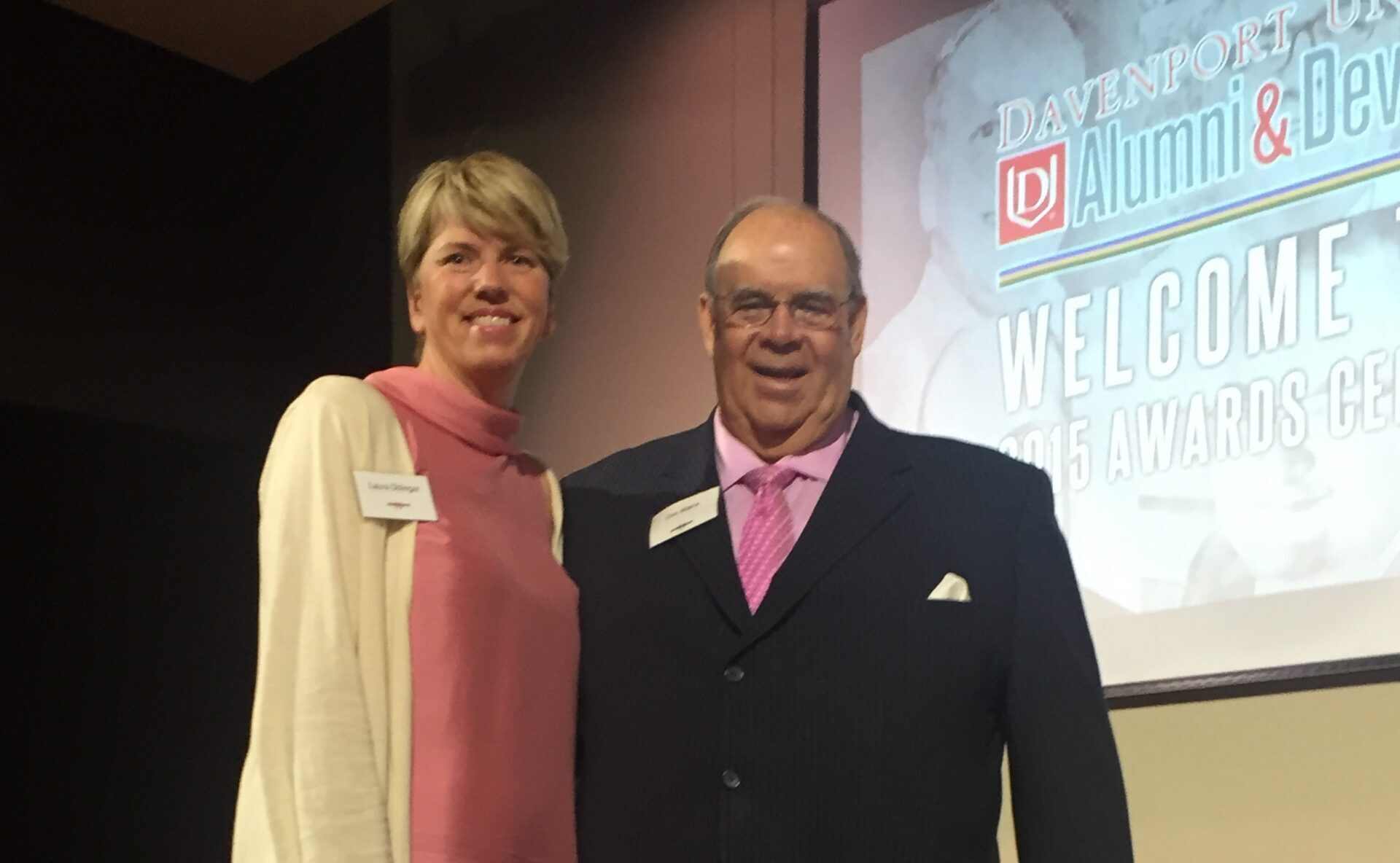Thank you to the students representing many DU campuses and online that participated in this year’s MLK Day Essay Contest. The contest was a part of the speakers, service projects and initiatives planned around the state to honor Martin Luther King Jr. This was the fifth year of the essay contest and participants were asked to respond to the following:
In 1947, at the age of 18, MLK wrote a short essay for the Morehouse College Student Paper, The Maroon Tiger, entitled ”The Purpose of Education”. Review the excerpt below and respond to the questions.
–
It seems to me that education has a two-fold function to perform in the life of man and in society: the one is utility and the other is culture. Education must enable a man to become more efficient, to achieve with increasing facility the legitimate goals of his life.
Education must also train one for quick, resolute and effective thinking. To think incisively and to think for one’s self is very difficult. We are prone to let our mental life become invaded by legions of half-truths, prejudices, and propaganda. At this point, I often wonder whether or not education is fulfilling its purpose. A great majority of the so-called educated people do not think logically and scientifically. Even the press, the classroom, the platform, and the pulpit in many instances do not give us objective and unbiased truths. To save man from the morass of propaganda, in my opinion, is one of the chief aims of education. Education must enable one to sift and weigh evidence, to discern the true from the false, the real from the unreal, and the facts from the fiction.
We must remember that intelligence is not enough. Intelligence plus character–that is the goal of true education. The complete education gives one not only power of concentration, but worthy objectives upon which to concentrate. The broad education will, therefore, transmit to one not only the accumulated knowledge of the race but also the accumulated experience of social living.
–
Nearly 70 years after this was written, consider the role that education plays in today’s society. (1) Discuss and provide an example of how you have demonstrated critical thinking in the classroom. In addition, (2) what does the term “character” mean to you? Give an example of how you have demonstrated character as a student? Lastly, (3.) how do you decipher the unbiased truth in today’s society?
We are excited to announce the following students as finalists for the 2017 MLK Day Essay Contest:
- 1st Place ($1500) – Kuana School (Lansing Campus) (see full essay below)
- 2nd Place ($1000) – Ashley Bosley (Online)
- 3rd Place ($500) – Evan Kingsbury (Online)
- Honorable Mention ($250 each) – Payton Kramer (W.A. Lettinga Campus), Megan Stainer (Warren Campus), Shayla Toins (Online), Chloe Veldhof (W.A. Lettinga Campus)
In addition, thank you to the following faculty and staff members that served as judges: Dr. Melissa Haswell, John Jaksa, Dr. Regina Pierce, Dr. Terri Tomaszek, and Dr. James Young.
Congratulations to our finalists and thanks again for all who participated with the essay contest!
Winning Essay by Kuana School
As Dr. Martin Luther King Jr. described, I too often wonder if the original goals of academia are being met within modern society. As I consider the common classroom environment, I recall seasons of detailed rubrics and mundane history written from ever-evolving perspectives. Although this general system seems reasonable as groundwork for a long-term education, at times I’ve considered how such learning brackets may fall short in substance for an overall life education. Dr. King brought attention to the importance of being able to think freely, without the inhibiting effects of a previous generation’s idealizations. History is just that: “his story”. It is what the person who triumphs gets to say is the truth.
This is where critical thinking comes into play. Intelligence, according to some, may just be memorizing mere facts and knowing how to use them in one’s own favor. While as Dr. King referenced, education facilitates efficiency, he also brings to light that it alone does not counteract bias. Character, however, is something that must be learned from within oneself. It is the understanding of how all things are connected, and can be affected by one single action. Character is the ability to innately know and boldly uphold what is right, even when the majority says otherwise. Related to the classroom environment, I recall a recent experience during one of my nursing clinical rotations this year. As a student nurse, I am required to draw from my critical thinking skills often, but this clinical entailed something I had not practiced yet: how to navigate the underlying perception of subtle medical negligence due to racial and/or socioeconomic status. It is something you feel, and it does not make sense. That is when character kicked in for me – the student nurse who is only supposed to observe and not say too much – I, without hesitation utilized my own critical thinking. I could not refrain myself from asking the health team why our patient’s blood pressure cuff was on the floor instead of his arm, why he was uncovered and cold, and why we were not monitoring him nearly as often as the (non-minority) patients in the next two rooms who carried insurance and were admitted with lesser traumas. As a result, this patient received better care that day. In addition, the nurse I specifically spoke to seemed to become aware of her own possible bias(es).
I have learned to tune into that inner compass that helps me decipher truth from untruth in society today, it whispers to me when to speak up for myself, and for others. I truly believe our educational system such as sociology or ethics courses, can help society learn not just what to say, but when to speak out. Ideally, our educational programs should not only ensure useful knowledge and physical skills, but also the ability “to sift and weigh evidence, to discern the true from the false, the real from the unreal, and the facts from the fiction”, as Dr. King had written.
Share This Story!
Thank you to the students representing many DU campuses and online that participated in this year’s MLK Day Essay Contest. The contest was a part of the speakers, service projects and initiatives planned around the state to honor Martin Luther King Jr. This was the fifth year of the essay contest and participants were asked to respond to the following:
In 1947, at the age of 18, MLK wrote a short essay for the Morehouse College Student Paper, The Maroon Tiger, entitled ”The Purpose of Education”. Review the excerpt below and respond to the questions.
–
It seems to me that education has a two-fold function to perform in the life of man and in society: the one is utility and the other is culture. Education must enable a man to become more efficient, to achieve with increasing facility the legitimate goals of his life.
Education must also train one for quick, resolute and effective thinking. To think incisively and to think for one’s self is very difficult. We are prone to let our mental life become invaded by legions of half-truths, prejudices, and propaganda. At this point, I often wonder whether or not education is fulfilling its purpose. A great majority of the so-called educated people do not think logically and scientifically. Even the press, the classroom, the platform, and the pulpit in many instances do not give us objective and unbiased truths. To save man from the morass of propaganda, in my opinion, is one of the chief aims of education. Education must enable one to sift and weigh evidence, to discern the true from the false, the real from the unreal, and the facts from the fiction.
We must remember that intelligence is not enough. Intelligence plus character–that is the goal of true education. The complete education gives one not only power of concentration, but worthy objectives upon which to concentrate. The broad education will, therefore, transmit to one not only the accumulated knowledge of the race but also the accumulated experience of social living.
–
Nearly 70 years after this was written, consider the role that education plays in today’s society. (1) Discuss and provide an example of how you have demonstrated critical thinking in the classroom. In addition, (2) what does the term “character” mean to you? Give an example of how you have demonstrated character as a student? Lastly, (3.) how do you decipher the unbiased truth in today’s society?
We are excited to announce the following students as finalists for the 2017 MLK Day Essay Contest:
- 1st Place ($1500) – Kuana School (Lansing Campus) (see full essay below)
- 2nd Place ($1000) – Ashley Bosley (Online)
- 3rd Place ($500) – Evan Kingsbury (Online)
- Honorable Mention ($250 each) – Payton Kramer (W.A. Lettinga Campus), Megan Stainer (Warren Campus), Shayla Toins (Online), Chloe Veldhof (W.A. Lettinga Campus)
In addition, thank you to the following faculty and staff members that served as judges: Dr. Melissa Haswell, John Jaksa, Dr. Regina Pierce, Dr. Terri Tomaszek, and Dr. James Young.
Congratulations to our finalists and thanks again for all who participated with the essay contest!
Winning Essay by Kuana School
As Dr. Martin Luther King Jr. described, I too often wonder if the original goals of academia are being met within modern society. As I consider the common classroom environment, I recall seasons of detailed rubrics and mundane history written from ever-evolving perspectives. Although this general system seems reasonable as groundwork for a long-term education, at times I’ve considered how such learning brackets may fall short in substance for an overall life education. Dr. King brought attention to the importance of being able to think freely, without the inhibiting effects of a previous generation’s idealizations. History is just that: “his story”. It is what the person who triumphs gets to say is the truth.
This is where critical thinking comes into play. Intelligence, according to some, may just be memorizing mere facts and knowing how to use them in one’s own favor. While as Dr. King referenced, education facilitates efficiency, he also brings to light that it alone does not counteract bias. Character, however, is something that must be learned from within oneself. It is the understanding of how all things are connected, and can be affected by one single action. Character is the ability to innately know and boldly uphold what is right, even when the majority says otherwise. Related to the classroom environment, I recall a recent experience during one of my nursing clinical rotations this year. As a student nurse, I am required to draw from my critical thinking skills often, but this clinical entailed something I had not practiced yet: how to navigate the underlying perception of subtle medical negligence due to racial and/or socioeconomic status. It is something you feel, and it does not make sense. That is when character kicked in for me – the student nurse who is only supposed to observe and not say too much – I, without hesitation utilized my own critical thinking. I could not refrain myself from asking the health team why our patient’s blood pressure cuff was on the floor instead of his arm, why he was uncovered and cold, and why we were not monitoring him nearly as often as the (non-minority) patients in the next two rooms who carried insurance and were admitted with lesser traumas. As a result, this patient received better care that day. In addition, the nurse I specifically spoke to seemed to become aware of her own possible bias(es).
I have learned to tune into that inner compass that helps me decipher truth from untruth in society today, it whispers to me when to speak up for myself, and for others. I truly believe our educational system such as sociology or ethics courses, can help society learn not just what to say, but when to speak out. Ideally, our educational programs should not only ensure useful knowledge and physical skills, but also the ability “to sift and weigh evidence, to discern the true from the false, the real from the unreal, and the facts from the fiction”, as Dr. King had written.
Share This Story!
Stay connected!
Get the latest Davenpost News delivered to your inbox!
Related Stories
Between balancing practice, classes, homework and jobs, Davenport University student-athletes are dedicating time to mentor children in Caledonia schools. The [...]
Grand Rapids, Mich. (March 4, 2021) — Following a successful fall event, Davenport University is preparing to host its second [...]
The National Institute for Learning Outcomes Assessment (NILOA) has named Davenport University and eleven other colleges and universities across the [...]
Latest Stories
Members of the West Michigan community gathered at Grand Rapids’ Wealthy Theatre on Feb. 4 to honor Rev. Dr. Martin [...]
The familiar pop-pop of ping-pong balls filled the CLE at Davenport University’s W.A. Lettinga Grand Rapids Campus as students, staff [...]
Photo caption: Laura Oblinger and the late Donald W. Maine Davenport University’s Direct Connect partner, Northwestern Michigan College, is celebrating [...]








